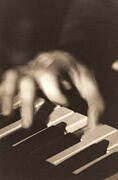
THURSDAY, May 12 (HealthDay News) — Music hath charms to protect the aging brain.
That’s the finding of a study by Northwestern University researchers who compared adults aged 45 to 65 with and without musical experience.
“Lifelong musical training appears to confer advantages in at least two important functions known to decline with age — memory and the ability to hear speech in noise,” study co-author Nina Kraus, director of the Auditory Neuroscience Laboratory at Northwestern University’s School of Communication, said in a university news release.
She and her colleagues found that the 18 musicians in the study performed much better on tests of auditory memory and the ability to hear speech in noisy settings compared to the 19 non-musicians.
The study findings were published in the May 11 online edition of the journal PLoS One.
“Difficulty hearing speech in noise is among the most common complaints of older adults, but age-related hearing loss only partially accounts for this impediment that can lead to social isolation and depression,” Kraus noted. “It’s well known that adults with virtually the same hearing profile can differ dramatically in their ability to hear speech in noise.”
Music training “fine-tunes” the nervous system, she explained.
“Sound is the stock in trade of the musician in much the same way that a painter of portraits is keenly attuned to the visual attributes of the paint that will convey his or her subject,” Kraus added.
“If the materials that you work with are sound, then it is reasonable to suppose that all of your faculties involved with taking it in, holding it in memory and relating physically to it should be sharpened,” she added. “Music experience bolsters the elements that combat age-related communication problems.”
More information
The U.S. National Institute on Deafness and Other Communication Disorders has more about hearing loss and older adults.

